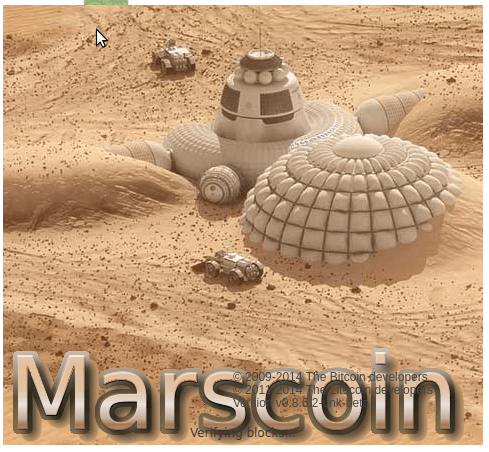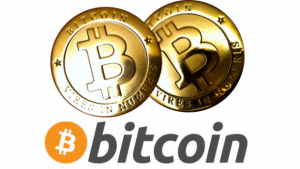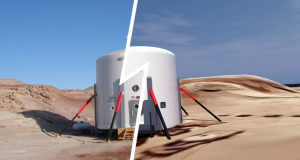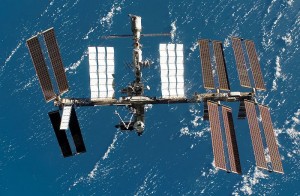Cryptocurrency Still Seen As A “Weird Libertarian Thing”
What’s the best way to spark a discussion about cryptocurrencies on the Mars Society Facebook group? Apparently, one way is to post about a Thunderclap I’m running to promote another blog entry. One person promptly asked if I thought Marscoin could do away with the need for banks on Mars.
That’s a totally reasonable thought. For the first few Martian generations, we probably won’t have much use for unnecessary services like physical banks. We may just figure that we can easily carry our money in a Bitcoin or Marscoin wallet on our tablet along with important apps that can help us remote-monitor our system status and access checklists while going about our daily routines.
Eventually, going bankless will just become something that Martian society will just take for granted. People here on Earth apparently think that’s weird. Cryptocurrencies get referred to as, in the words of a member of the Facebook group, “A weird Libertarian thing.”
In reality, it’s only “weird” because people aren’t really used to having a new kind of currency designed specifically for the digital world yet. It’s Libertarian only in the sense that transactions between two individual people, or a person and a business, doesn’t involve a third party that can high fees for doing nothing but sitting on your money and shut down your account on the merest sniff of suspicious activity. Whenever you search the Blockchain, you’re seeing only numbers that tell you nothing about the people behind them.
Maybe we should have seen Bitcoin coming. Most of us who have access to the Internet have made at least one online purchase in the past year. Credit cards just aren’t cutting it when you hear stories about hackers making off with all the credit card numbers stored on a large retailer’s servers. If that happens with Bitcoin, the worst that will happen is that the hackers can send very tiny Bitcoin units called Satoshis to those addresses like the Blockchain-spammers have been doing (and yes, I have received my fair share of those Satoshis). Even Paypal has its problems with high fees and the fact that they’re basically squatting on top of already existing financial services. Cryptocurrencies may bring their own slew of problems, but they could also solve many of the problems created by a centralized, inflationary economic system that hasn’t changed much since paper money was introduced if only it snags a greater market share than it has been.
It’s been argued that Mars is our chance to build a whole new society with none of the generational baggage of old moribund Earth societies. It’s a fair point, but we shouldn’t do it in a way that amounts to one step forward and two steps backwards. We hear from the people who say that we should do away with currency altogether, but that would throw us back to the cave man level where if you can’t eat it, drink it, or fight off a carnivore or a romantic rival with it, it’s worthless. It’s tough to trade with your fellow cave man if you want to trade part of your kill for some firewood, but he’s not hungry right now. The point of currency is to have a place-holder that you received for having produced something of value for somebody else, and you can trade it for something of value at some point in the future. This idea of storing value against future need is what helps us build a civilization that is stable in the long-term.
Cryptocurrencies can reduce or eliminate some of the inefficiencies in our current system, however. In their pure form, cryptocurrencies rely on computing power to confirm transactions and maintain a public ledger called a Blockchain. With the decentralized Bitcoin network, financial institutions are simply cut out of the picture and that means they can’t charge outrageous fees for the privilege of using your own money.
I don’t imagine we’ll have nonessential services like banks on Mars for at least a few generations anyway. It would be easier for the first wave of colonists to take along the Marscoin Blockchain on a USB flash drive than it would be to establish a formal bank. Eventually, future Martians would simply be used to the idea of carrying their money on the same tablet that they use to remote-monitor their habitat systems and store checklists.
Marscoin can eventually provide the medium of exchange we need for trade between independent colonies. Once it’s established that people can and will live on Mars, it’ll be like opening the same kind of floodgate that led to the establishment of so many American colonies out of Europe. Not all of the new Martian colonists are going to be high-minded idealists and we’ll have to be ready to deal with the fact that they’re in it for personal gain. That will mean having systems in place to deal firmly with the bad actors and it will also mean making sure we’re ready when a medium of exchange is needed. It might even mean hashing out some of the tough issues now so we don’t run into a situation like in Kim Stanley Robinson‘s Mars trilogy, where a debate between two colonists escalated into a civil war.
A native Martian civilization could end up looking like nothing we would ever expect. We should remember that we’re dealing with a harsh, unforgiving environment that will not make a distinction between the high-minded idealist who expects Mars to transform to suit his own principles and the greedy Ferengi type who let his avarice override his common sense. Both types have an equal chance of being turned into a frozen human-sicle that will be found by more realistic colonists and placed in Loser’s Row as an example of what happens when colonists don’t respect the realities of living on Mars.
In this context, the idea of eliminating nonessentials like financial services until we have a socioeconomic infrastructure that can support them makes sense. Why should we have a bank taking up our time and resources when we can simply plug a USB stick loaded with the Marscoin Blockchain into a server and let it run in the background? Once we do have the infrastructure, using cryptocurrencies for any transaction that requires a medium of exchange may simply be a social habit that makes banks obsolete.









